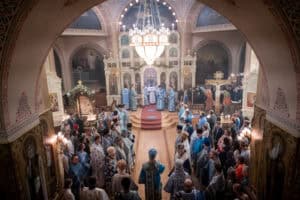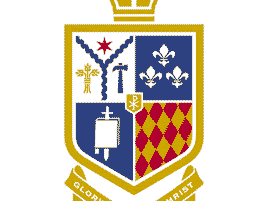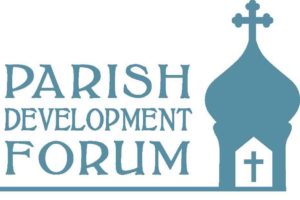Diocese Represented at First Annual Sophia Institue Conference
New York, NY [MW Communications] – Union Theological Seminary, New York City was the site for the first annual Sophia Institute One Day Academic Conference held December 5, 2008. The conference title was “Women in the Orthodox Church: Past Roles—Future Paradigms.
Diocesan Seminarian Juliana Mecera—a student at St. Vladimir’s Seminary—as well as her mother Ann Marie Gidus-Mecera, Diocesan Council member, presented short papers that expressed their shared passion for utilizing women’s God-given gifts for the good of the Church and its people.
Keynote speakers included Orthodox scholars Prof. Valentina Izmirlieva, Fevronia Soumakis, Teva Regule, and Stamenka Antonova. Conference host and Director of the Sophia Institute is the V. Rev. Dr. John McGuckin, Nielsen Professor in Late Antique and Byzantine Christian History at Union Theological Seminary and Professor of Byzantine Christian Studies, Columbia University.
A common theme that recurred throughout the conference was evidence that women played a significant role in the early church, with the deaconess being ordained at the altar, serving in a liturgical capacity, and ministering to women and children.
Juliana presented a reflection of her experiences of growing up in the Orthodox Church and studying at St. Vladimir’s Seminary. She spoke enthusiastically of parish life in which she had been highly active and in which many women had served as mentors to her. “I have realized what effective ministers of the Gospel these many women are.” She acknowledged that seeking ways to continue serving the larger Orthodox Church in America seems to require great creativity as a woman. “Additionally, my interaction with ordained women and those on the path to ordination in other traditions has encouraged me to take my responsibility as a leader in the Church more seriously… and has encouraged me to be more faithful.” Juliana will continue further graduate studies in theology to pursue doctoral work in systematic theology.
Ann Marie presented a condensed version of a paper she originally presented at a University of Leeds conference in England entitled “Women as Lay Ministers in the Orthodox Church,” which explored numerous instances in which women could minister in an official capacity to women, children and converts in the contemporary church. “The Orthodox Church and its faithful sadly suffer in many ways by not utilizing the gifts and talents of women,” Mrs. Mecera points out. “We have graduated bright, dedicated women from our seminaries who disappear into a non-related vocation because their talents and gifts are not used in the Church. Imagine the pool of talent that could immediately be available!” Ann Marie sums up her observations by saying, “Without the role of the deaconess, Orthodox Christians fail to experience the fullness of the Faith as Christ intended.”
Reflecting on the first annual conference theme, the V. Rev. Dr John McGuckin commented, “The Conference initiating the work of the new International Orthodox Sophia Institute, revolving around the theme of women’s social and spiritual ministry in the Orthodox Church, was a great success, and demonstrated quite clearly the immense spiritual gifts that Orthodox women have to offer in the mission of the church today, not merely in the past.”
According to Fr. McGuckin, next year’s conference will be “a study of Orthodox Philanthropy past and present- our collective work continuing to ask the ‘connecting’ questions between the Church’s historical and theological tradition, and the lived-out praxis of its role in the contemporary world.”
The Sophia Institute is an Advanced Research Institute and Philanthropic Foundation that focuses on the historical culture and ethical outreach of Orthodox Christianity. It is an independent foundation that functions in association with a number of university partners and collaborators, notably: The Harriman Institute (Columbia University), The Center for Early Christian Studies (Catholic University of Australia), The School of Early Christian and Eastern-Christian Affairs (Louvain University), The Institute of Ecumenical Studies (Lviv University, Ukraine), and The School of Global Ethics, Leeds Metropolitan University. The primary goals of the Sophia Institute are to encourage the study of the Eastern Christian Tradition – its history, thought, liturgical and spiritual cultures, as well as issues concerned with its ecumenical and socio-ethical engagement with the contemporary world.




